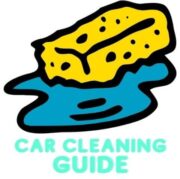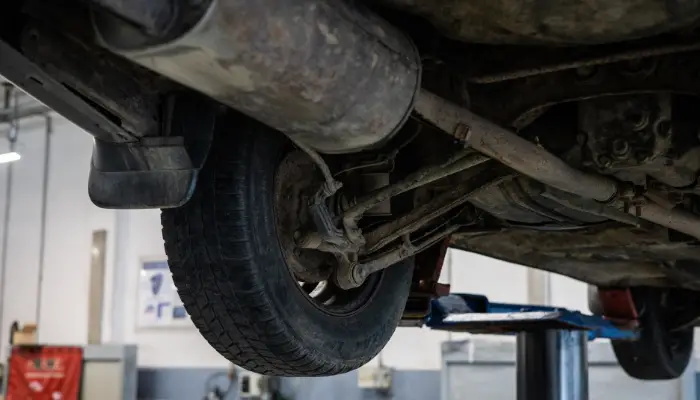- How to Clean Car Carpets Quick and Easy - July 10, 2024
- Can You Touch Up Clear Coat? Yes and No (Here’s Why) - November 25, 2023
- How To Wax A Car By Hand: A Comprehensive Guide - November 14, 2023
Last Updated on September 27, 2023 by Chase Manhattan
As a southerner, I have to say that it’s quite a relief not having to deal with my car being exposed to road salt on a regular basis; however, we’re not all that lucky. Some people must wash their car’s undercarriage more frequently.
Today, I’m going to show you when to worry about the rust on your car’s exhaust system, how to remove rust from your exhaust system, and how to go about preventing rust and corrosion from developing afterward.
Here’s a quick guide to removing rust from your exhaust system:
- rinse the cars underside
- dry well
- apply WD40 or PB Blaster
- scrub with steel wool
- finish with scouring pad
- buff until satisfied
I’ll go into more detail shortly, but first let’s answer a few questions.
[How To Clean Exhaust Tips][How to Test a Purge Valve (Guide)]
Quick Navigation
Is It Normal For an Exhaust System to Rust?
Yes, it’s relatively normal for an exhaust system to rust. The car’s undercarriage is the primary point of contact for road particles, environmental conditions, and other debris. Other debris and conditions meaning such things like:
- mud
- dirt
- salt
- moisture
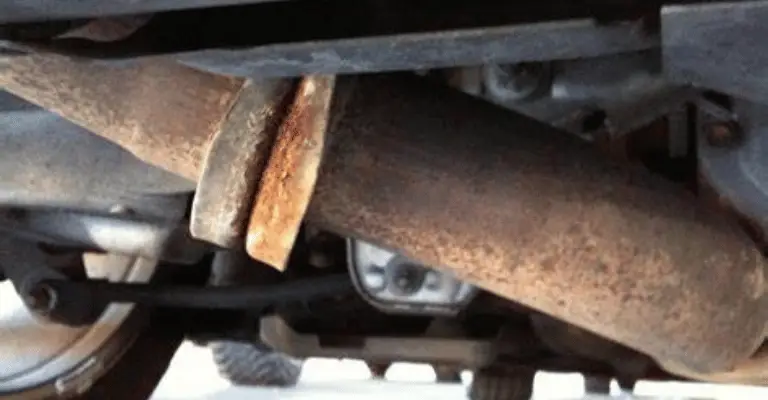
While it’s normal to have a hard time keeping the underside of your car , especially your exhaust system, from rusting, there are some steps we can take for preventing rust, while there are other factors at play as well.
[How To Keep Rust Bubbles From Spreading On Your Car]
Different Types of Exhaust Systems
Most exhaust systems on cars are made of stainless steel, which happens to be rust and corrosion resistant but will still wear away over time. Here are some other common types of exhaust systems that are resistant to rusting:
- aluminized steel
- titanium alloy
- inconel/nickel alloy
[How To Clean a Catalytic Converter][How To Clean an O2 Sensor]
Why Do Exhausts Rust So Quickly?
An exhaust system is prone to rusting quickly because it is made of metal that is exposed to mud, dirt, and other particles, on a relatively routine basis. Additionally, the exhaust system is most frequently one of the only pieces of metal that is exposed to large amounts of moisture – should you drive your car in a coastal climate or wet conditions.
How Do You Remove Exhaust Pipe Rust?
Fortunately, it’s relatively easy to remove rust from metal surfaces like an exhaust system but the process can vary depending on the severity of the rust at hand.
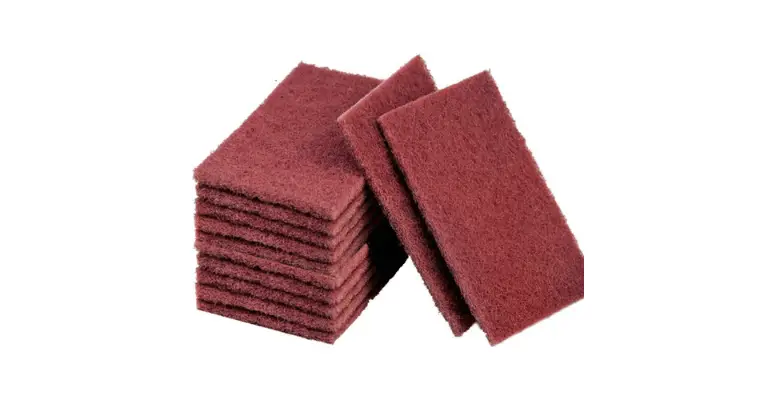
Learn how you remove surface rust from stainless steel exhaust systems by following the steps below.
Rinse The Car’s Undercarriage
Rinse the cars undercarriage thoroughly to get rid of any dirt or debris that will accelerate the rusting process.
Dry Thoroughly with Compressed Air
The best method to dry the car is with compressed air, but you can also dry by hand if necessary. You can use a microfiber cloth or an old towel/rag for this. It’s important to dry as thoroughly as possible as excess moisture is the primary contributor to the start of the rusting process.
Apply WD40 or PB Blaster
PB Blaster and WD40 are both solvents that work to treat and remove rust, mold, and other sticky material. In this case, they will act as a solvent but also as a lubricant for scouring the exhaust system.
Related article: WD40 vs PB Blaster
Scrub With Scouring Pad
I prefer a readily available scouring pad like Scotch-Brite for this step. Take your scouring pad and work it back and forth, side to side, in the same motion, until the rust has begun to lift from the surface.
In severe cases, you may need to use steel wool instead of the Scotch-Brite.
Buff Until Satisfied
Using an old rag or towel, remove any excess moisture from the exhaust system. Buff until you’re satisfied with the results.
[Related Article: 6 Common Causes of Car Scratches]
How Do I Stop My Exhaust Pipe From Rusting?
The best way to stop an exhaust pipe from rusting is to wash your car on a routine basis, including an undercarriage wash. This will remove any loose particles, and prevent them from building up in the future.
There are products designed specifically for the undercarriage of a vehicle, which is my preferred method to get the job done. However, with a quick search, you can also find automatic car washes that offer this service.
For maximum effectiveness, I prefer to thoroughly coat the underside in WD40 or an undercarriage protectant product like the Barebones Kit from Chemical Guys.
[Where The Purge Valve and Charcoal Canister is Located][How To Clean a Purge Solenoid Valve]
Can Your Exhaust Rust Off Entirely?
Yes, an exhaust system can rust off entirely, but this more frequently happens to the muffler. Due to the geometry involved with the exhaust system, the muffler is usually at a joint in the exhaust system which essentially functions as a weak link when compared to the rest of the system, as corrosion begins to form.
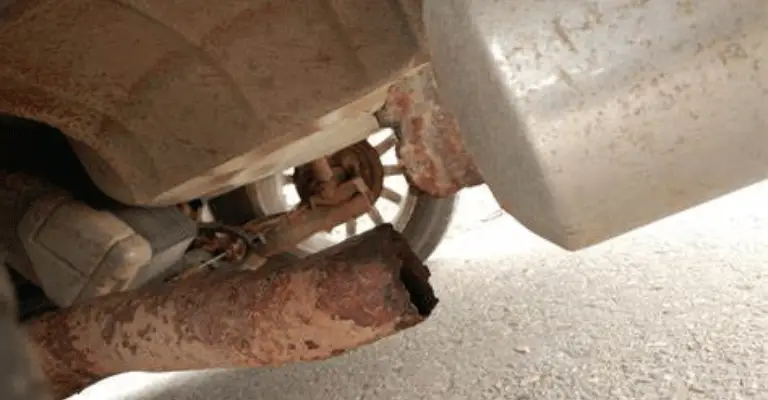
Other factors in a muffler rusting off include the fact a muffler is more prone to trap moisture inside the pipe. This moisture inside the muffler then works to erode it from the inside out, allowing decay to form in a more consistent manner than before.
If you have an exhaust pipe that has rusted entirely you will notice a foul odor, or a louder exhaust note than usual.
[Guide for Removing Plastic Bumper Scratches]
How Much Does It Cost To Fix Rusted Exhaust Pipes?
Depending on the severity of the decay, the availability of parts for the vehicle, and the metal composition of the exhaust pipe, it can range from a few hundred dollars to almost a thousand dollars to fix a rusted exhaust pipe.
[Why You Shouldn’t Drive With a Faulty Purge Solenoid Valve]
